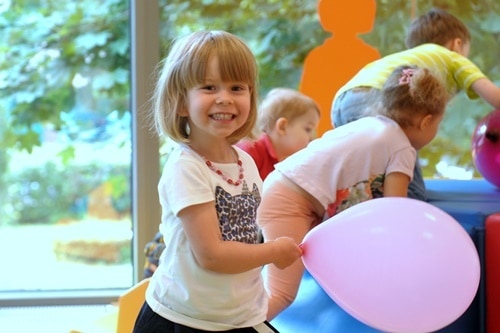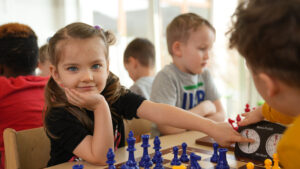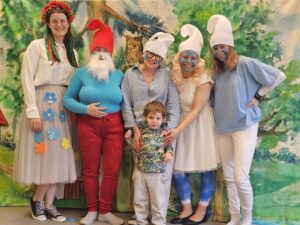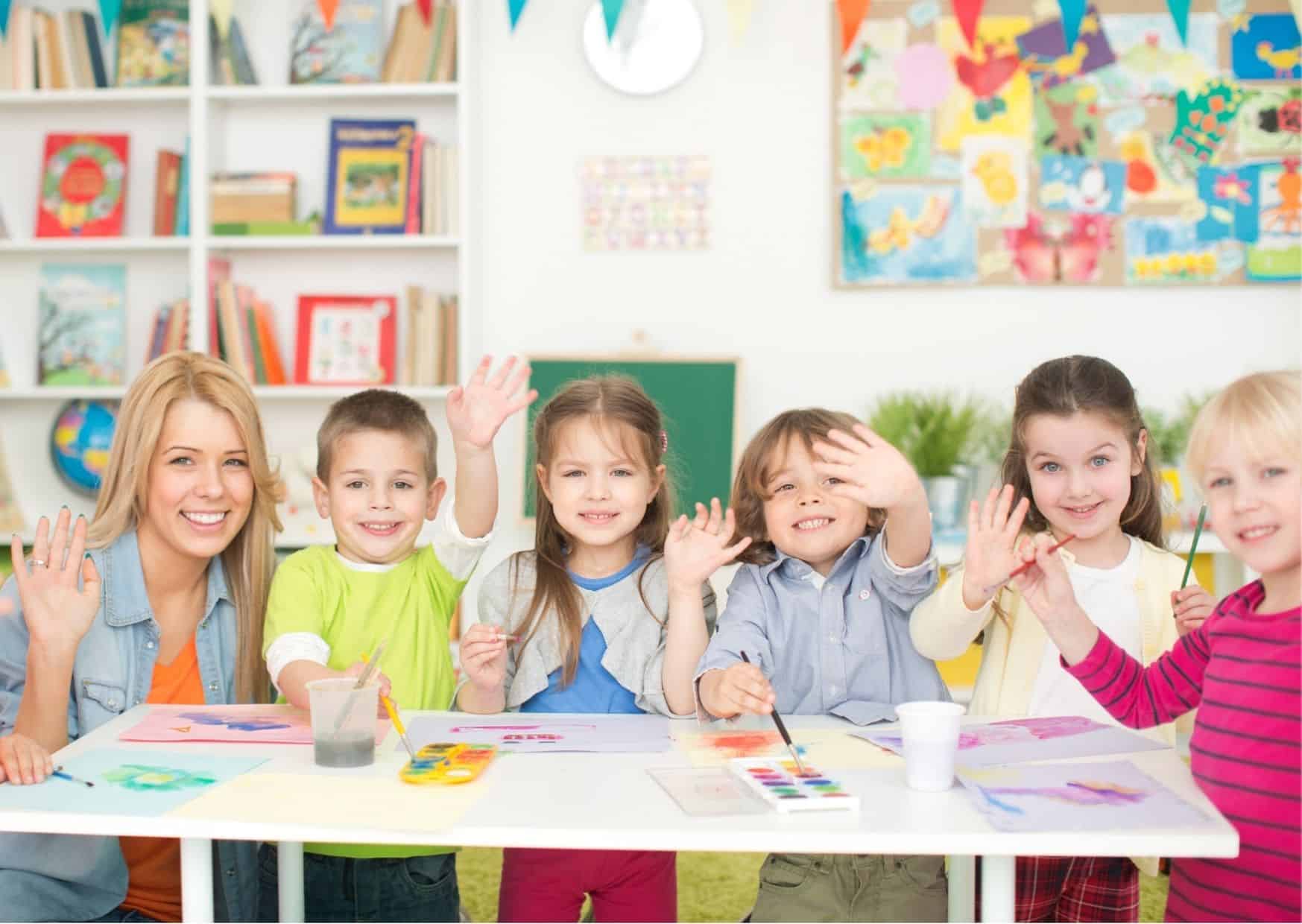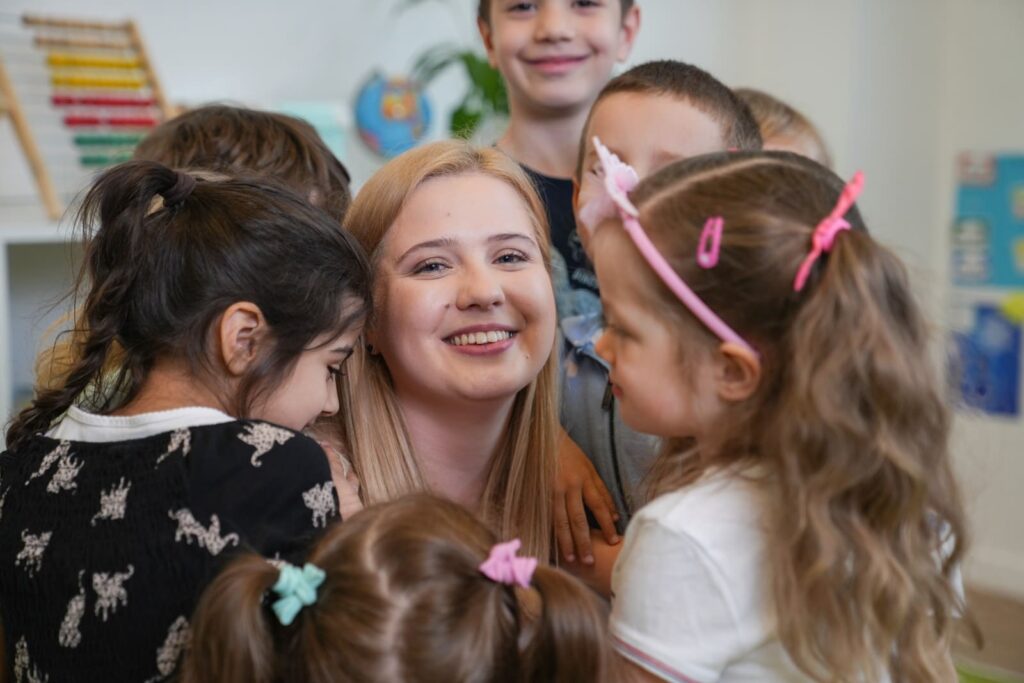Learning ability develops most rapidly in the first years of life. About 50% a child acquires opportunities in preschool, and another 30% develops in early childhood. It follows that the choice of a kindergarten is one of the most important decisions concerning education and the future of our child.
During the first years of life, the child is extremely easy to learn. Children's emotions play a large role here, so if the learning process is accompanied by positive feelings, it is faster and more efficient. The child's welfare largely depends on what conditions we provide for him to play and learn from an early age. So if we approach it thoughtfully, the skills acquired in kindergarten will be the best start in early childhood education.
What does the kindergarten give?
– A child's stay in kindergarten has a very positive effect on his development. It stays in a natural and professionally prepared environment, which is conducive to learning and understanding the environment and the world, acquiring skills through action and emotional development. Research has confirmed that most children reach the appropriate maturity to attend kindergarten as early as the age of three. At home, parents, grandmothers or guardians are often not able to provide the toddler with such development as educated teachers and educators - says Katarzyna Sowińska, psychologist in kindergartens "Orange Ciuchcia".
In kindergarten, a toddler learns everything and becomes motivated because other children can do it or are learning it, which gives them confidence in themselves and their abilities. He also learns how to cooperate in a group, which is usually not possible at home. The kindergarten also plays a very important role in achieving the so-called school maturity, consisting in attempts to read and write, concentrating during classes, learning and applying the applicable boundaries, adequately responding to commands, prohibitions and orders. The child also learns the power of motivation and reward and understands the consequences of negative behavior.
Research and scientists show that a seven-year-old who goes to school after 3-4 years of pre-school education significantly exceeds a peer who did not attend kindergarten, even by two years in terms of many skills. Kindergarten, unlike school, is a place where there are time and conditions for equalizing the level of skills. Children do it stress-free, because in kindergarten they cannot be judged for their skills, and they are not able to judge their own abilities.
Public or private kindergarten?
Preschoolers can derive real joy from experiencing and learning through play. None of the other stages of later learning will provide a child with such attractive conditions for development and stimulating creativity and creativity. Educational programs offer opportunities to gain a variety of experiences and participate in interesting activities. They develop, among others physical fitness, manual and technical skills, reading and counting, getting to know the environment, developing sensory feelings, shaping the value system. Thanks to the experience gained in the group, social education is faster and more effective. A natural and spontaneous learning of the basics of tolerance, partnership and coexistence in the environment of peers follows.
However, which kindergarten to choose - public or private? Does the child have the same development opportunities in each setting? It should be remembered that non-public kindergartens are controlled by the Ministry of National Education and Sanepid, just as public ones. However, the offer of state and private kindergartens differs significantly. In the state-owned institution, only five hours a day are devoted to the implementation of the core curriculum, while in the private one there are no fixed hours, and additional classes are often included in the curriculum and included in the monthly fee. Private kindergartens offer a wide range of optional classes, incl. learning a foreign language, general development gymnastics, sports clubs, dancing and playing with ballet, learning to play instruments, theater, psychology, art, ceramics, natural science, culinary, science, robotics and many others.
- In the "Orange Ciuchcia" kindergartens, we place great emphasis on bilingual groups and groups with everyday English (also with a native speaker), because up to the age of 7, the foreign language acquisition is much more natural and effective. It is in kindergarten that children learn new words, songs and nursery rhymes the fastest and easiest. It is the same with music. If children have the opportunity to listen to various types of music or participate in professionally conducted musical games in kindergarten from early childhood, their chances of developing musical intelligence are significantly increased. - adds Ewa Tadeusz, methodologist of the Orange Ciuchcia Kindergarten.
In the "Orange Ciuchcia" kindergartens, children are also under constant psychological and speech therapy care. Workshops on dealing with emotions are organized, and systematic general development exercises with elements of sensory games are conducted, eliminating tactile and auditory hypersensitivity. These activities allow children to discover their strengths and interests, overcome weaknesses and fears, and overcome shyness.
Parents of graduates about the Orange Ciuchcia
Every year, parents of graduates of "Orange Cookie" anonymously evaluate the preparation of their children for school in 6 areas: reading, writing, maths, social, didactic and motor skills, and their grades oscillate between 5.0 and 5.5 on a scale of 0-6. Here are some opinions:
- “My child was very well prepared for school. She is curious about the world, she asks a lot of questions and takes various actions "
- "The skills acquired in kindergarten have repeatedly been reflected in praise and distinctions: behavior, group work, commitment"
- “Hansel doesn't have any difficulties in learning and social relations. Thank you very much!"
- "The best student in the first half of the year in the 1st grade"
- "The child was perfectly prepared for school - there was a huge difference in the class between the graduates of the Orange Train, children from other kindergartens"
- "The child is AWESOME prepared! Against the background of peers, the difference in reading and writing skills is very noticeable. The class has a faster workflow. "
- "5+! The daughter has no problems at school, but very good grades, she is doing great in the group (...) "
More about preparation for school in the Orange Ciuchcia: HERE.
